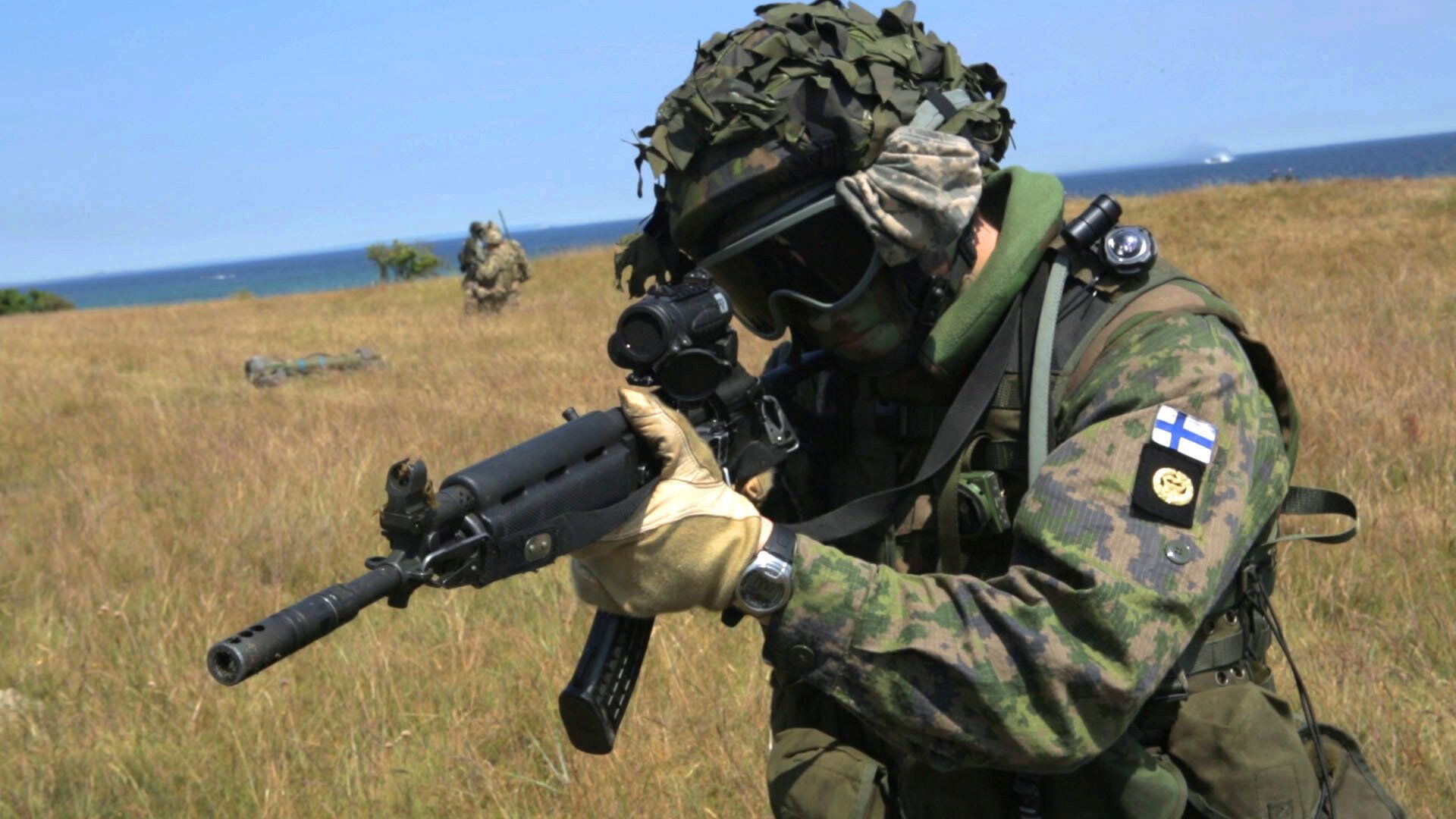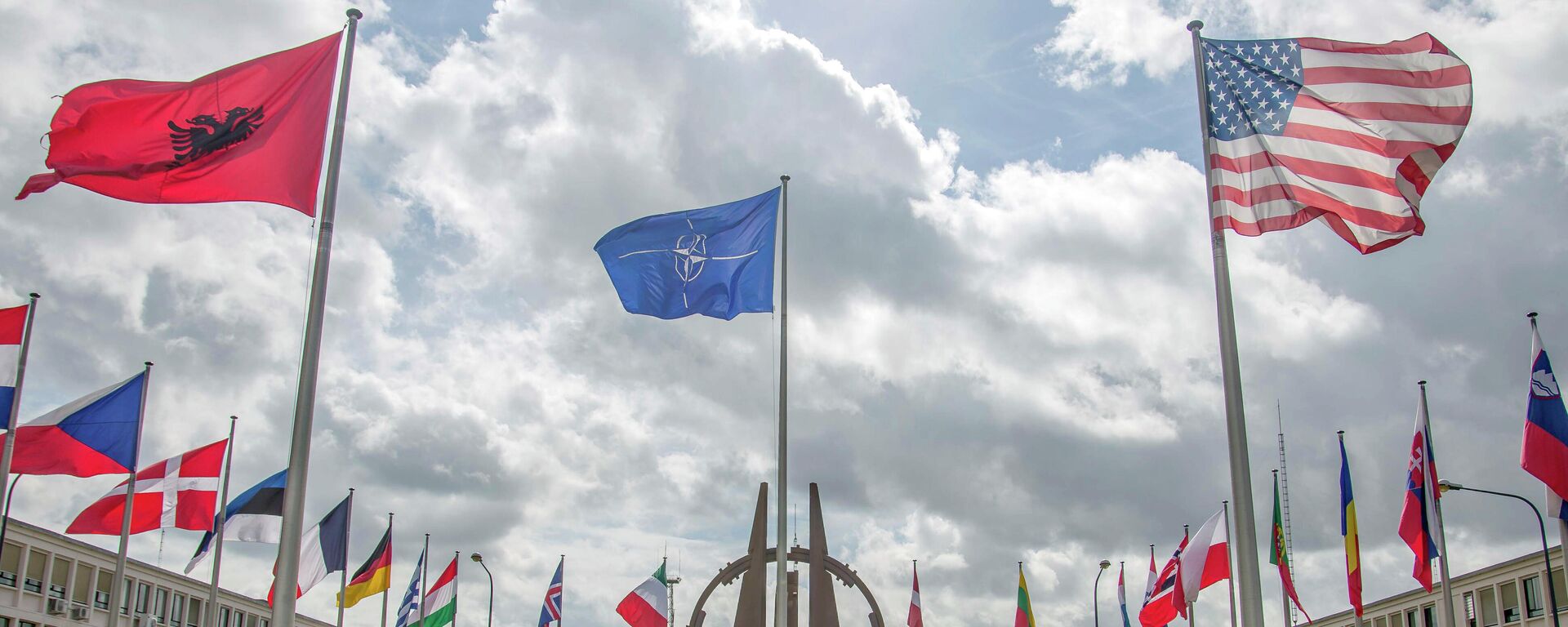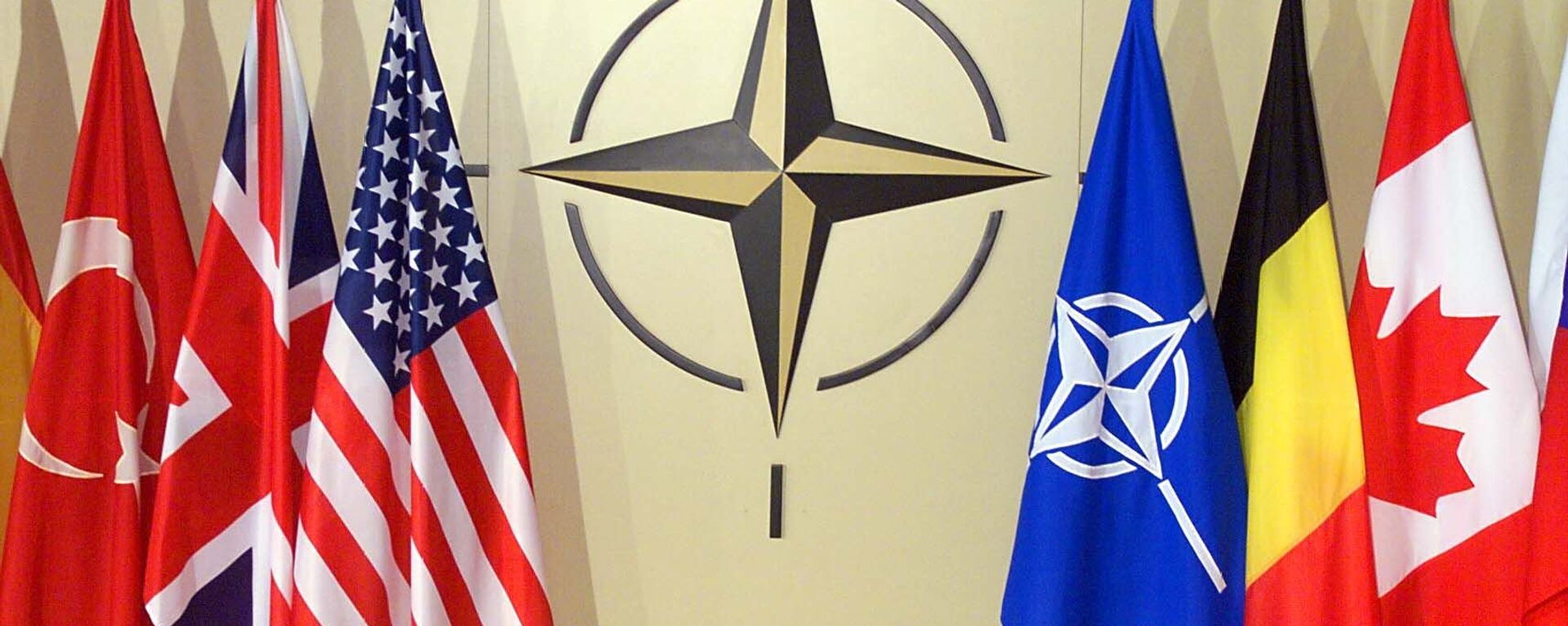https://sputnikglobe.com/20220826/turkey-remains-the-major-deterrent-to-finland-and-swedens-nato-aspirations-analysts-warn-1100042041.html
Turkey Remains the Major Deterrent to Finland and Sweden's NATO Aspirations, Analysts Warn
Turkey Remains the Major Deterrent to Finland and Sweden's NATO Aspirations, Analysts Warn
Sputnik International
Officials from Turkey, Finland and Sweden have agreed to hold a series of meetings through autumn to discuss security issues raised by Ankara as a precondition... 26.08.2022, Sputnik International
2022-08-26T18:06+0000
2022-08-26T18:06+0000
2022-08-26T18:06+0000
analysis
us
nato
sweden
finland
turkiye
terror threat
kurdistan workers' party (pkk)
neutrality
https://cdn1.img.sputnikglobe.com/img/106599/68/1065996826_0:0:1920:1080_1920x0_80_0_0_9193b88ed1de8820836863a12d70589a.jpg
"Ankara is not content with Sweden and Finland’s performance after the Madrid summit," explained Dr. Hasan Selim Ozertem, an Ankara-based security and political analyst. "Recently, the [Turkish] president reminded us that before expected steps to be taken by these countries Turkey will not be ratifying their accession to NATO."On May 18, Finland and Sweden submitted applications to the NATO secretary general to join the transatlantic military alliance amid Russia's special operation to demilitarize and de-Nazify Ukraine. Initially, Turkey blocked the two Nordic countries' applications, citing security concerns and accusing Helsinki and Stockholm of not doing enough to thwart a terror threat Ankara claims to be posed by Kurdish organizations. However, on June 29, Turkey, Sweden and Finland appeared to resolve the differences and signed a security memorandum that took all of Ankara's concerns into account.According to him, the unfolding series of meetings between Turkish, Finnish and Swedish officials are especially important to ensure that the Nordic states would fulfill their commitments. Otherwise, their NATO bid could be put on pause, he noted.Finland and Sweden are still undergoing the process of ratifying their applications by NATO member countries. As of August 25, 23 out of 30 countries have already approved their entry into the transatlantic alliance. The application has not been ratified so far by Spain, Greece, Portugal, Slovakia, Turkey, the Czech Republic and Hungary. It must be unanimously ratified by NATO members to proceed."Probably, some of the remaining countries will go on with the ratification in the autumn as the new legislation term begins," suggested the Turkish security analyst. "However, Ankara is likely to use this as leverage to get what it demands from Helsinki and Stockholm."Turkey remains the major deterrent to the two Nordic countries' NATO aspirations, echoed Earl Rasmussen, executive vice-president of Eurasia Center.While Turkey, Finland and Sweden agreed today to meet into the autumn and continue the dialogue, "there will likely be little movement until we see other NATO member states ratify the accession," the scholar suggested."As more members ratify the agreement, pressure will likely be placed on Turkey to come to some sort of settlement or negotiated agreement," he noted. "Finland and Sweden are small players and really have little impact on enhancing security for NATO. If anything, their movement from neutral to NATO membership will perhaps lessen their own security and deviate from historic neutrality, this is truly unfortunate. However, they have been participating quite closely with NATO recently and thus Russia probably sees little threat to the addition of both."Meanwhile, NATO Secretary General Jens Stoltenberg welcomed Friday's meeting between Turkey, Sweden and Finland. Stoltenberg underscored that the process of NATO accession has become one of the fastest in the history of the alliance.Washington expects that Finland and Sweden would bring military and territorial advantages to the transatlantic military alliance in the "high north" and in competition for the Arctic vis-à-vis Russia, according to the Associated Press.Previously, both Nordic countries had maintained neutrality with Finland, a former Nazi Germany ally, being bound by peace pacts with the USSR and later, Russia, which stipulated its non-aligned status. Finland shares a 1,340 km (830 mi) border with Russia and has maintained longstanding economic relations with Moscow for decades.The Kremlin has repeatedly underscored that Russia harbors no hostile intentions against either Nordic country, while also signaling that if military equipment or troops are deployed along the border, Moscow will have to respond in a mirror manner and create the same threats in the territories from which Finland and Sweden threaten Russia.
https://sputnikglobe.com/20220630/why-finland--swedens-nato-future-is-uncertain-fraught-with-economic--security-risks-1096839598.html
https://sputnikglobe.com/20220516/why-finland--swedens-nato-admission-is-so-important-to-the-us-1095551606.html
sweden
finland
turkiye
Sputnik International
feedback@sputniknews.com
+74956456601
MIA „Rossiya Segodnya“
2022
News
en_EN
Sputnik International
feedback@sputniknews.com
+74956456601
MIA „Rossiya Segodnya“
Sputnik International
feedback@sputniknews.com
+74956456601
MIA „Rossiya Segodnya“
us, nato, sweden, finland, turkiye, terror threat, kurdistan workers' party (pkk), neutrality
us, nato, sweden, finland, turkiye, terror threat, kurdistan workers' party (pkk), neutrality
Turkey Remains the Major Deterrent to Finland and Sweden's NATO Aspirations, Analysts Warn
Officials from Turkey, Finland and Sweden have agreed to hold a series of meetings through autumn to discuss security issues raised by Ankara as a precondition for Helsinki and Stockholm joining NATO. Their trilateral meeting took place in the southern Finnish city of Vantaa on Friday.
"Ankara is not content with Sweden and Finland’s performance after the Madrid summit," explained Dr. Hasan Selim Ozertem, an Ankara-based security and political analyst. "Recently, the [Turkish] president reminded us that before expected steps to be taken by these countries Turkey will not be ratifying their accession to NATO."
On May 18, Finland and Sweden submitted applications to the NATO secretary general to join the transatlantic military alliance amid Russia's special operation to demilitarize and de-Nazify Ukraine. Initially, Turkey blocked the two Nordic countries' applications, citing security concerns and accusing Helsinki and Stockholm of not doing enough to thwart a terror threat Ankara claims to be posed by Kurdish organizations. However, on June 29, Turkey, Sweden and Finland appeared to resolve the differences and signed a security memorandum that took all of Ankara's concerns into account.
"In the memorandum, the parties agreed to collaborate in countering terrorism and establishing a joint mechanism to enhance cooperation on counter-terrorism, organized crime, and other common challenges," said Ozertem, in a clear reference to the Kurdistan Workers Party (PKK), designated as a terrorist organization by Ankara.
According to him, the unfolding series of meetings between Turkish, Finnish and Swedish officials are especially important to ensure that the Nordic states would fulfill their commitments. Otherwise, their NATO bid could be put on pause, he noted.
Finland and Sweden are still undergoing the process of ratifying their applications by NATO member countries. As of August 25, 23 out of 30 countries have already approved their entry into the transatlantic alliance. The application has not been ratified so far by Spain, Greece, Portugal, Slovakia, Turkey, the Czech Republic and Hungary. It must be unanimously ratified by NATO members to proceed.
"Probably, some of the remaining countries will go on with the ratification in the autumn as the new legislation term begins," suggested the Turkish security analyst. "However, Ankara is likely to use this as leverage to get what it demands from Helsinki and Stockholm."
Turkey remains the major deterrent to the two Nordic countries' NATO aspirations, echoed Earl Rasmussen, executive vice-president of Eurasia Center.
"Turkey will likely be firm on their demands, specifically of the PKK as a terrorist organization," Rasmussen elaborated. "Additionally, they are requesting the extradition of those accused of terrorism from Sweden and Finland. However, succumbing to Turkey’s demands may require the Nordic countries to go against their own values and perhaps agreements that are already in place."
While Turkey, Finland and Sweden agreed today to meet into the autumn and continue the dialogue, "there will likely be little movement until we see other NATO member states ratify the accession," the scholar suggested.
"As more members ratify the agreement, pressure will likely be placed on Turkey to come to some sort of settlement or negotiated agreement," he noted. "Finland and Sweden are small players and really have little impact on enhancing security for NATO. If anything, their movement from neutral to NATO membership will perhaps lessen their own security and deviate from historic neutrality, this is truly unfortunate. However, they have been participating quite closely with NATO recently and thus Russia probably sees little threat to the addition of both."
Meanwhile, NATO Secretary General Jens Stoltenberg welcomed Friday's meeting between Turkey, Sweden and Finland. Stoltenberg underscored that the process of NATO accession has become one of the fastest in the history of the alliance.
Washington expects that Finland and Sweden would bring military and territorial
advantages to the transatlantic military alliance in the "high north" and in competition for the Arctic vis-à-vis Russia,
according to the Associated Press.
Previously, both Nordic countries had maintained neutrality
with Finland, a former Nazi Germany ally, being bound by peace pacts with the USSR and later, Russia, which stipulated its non-aligned status. Finland shares a 1,340 km (830 mi) border with Russia and has maintained longstanding economic relations with Moscow for decades.
The Kremlin has repeatedly underscored that Russia harbors no hostile intentions against either Nordic country, while also signaling that if military equipment or troops are deployed along the border, Moscow will have to respond in a mirror manner and create the same threats in the territories from which Finland and Sweden threaten Russia.




